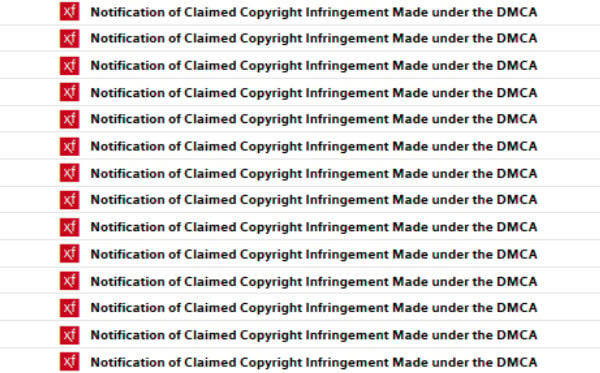 Regular Internet providers are being put under increasing pressure for not doing enough to curb copyright infringement.
Regular Internet providers are being put under increasing pressure for not doing enough to curb copyright infringement.
Earlier this year the Fourth Circuit Court of Appeals ruled that ISPs are required to terminate ‘repeat infringers’ based on allegations from copyright holders alone, a topic that has been contested for years.
As this case progressed, several Internet providers reviewed their applicable policies and updated them if needed. This was also true for Comcast, which published its repeat infringer policy online late 2017.
While it’s clear that Comcast reserves the right to terminate accounts of persistent pirates, it remains unclear when this would happen.
“Any infringement of third party copyright rights violates the law. We reserve the right to treat any customer account for whom we receive multiple DMCA notifications from content owners as a repeat infringer,” the company simply notes.
Today, we are able to add some further clarification, from a ‘binging’ pirate.
A few days ago we were contacted by a Comcast subscriber who received not one, not two, but more than 50 DMCA alerts from Comcast in a single day.

Although he had received similar alerts in previous months, in the first email of the batch Comcast clarified that this was the first alert under their DMCA repeat infringer policy, which may have something to do with the recent policy update.
“This alert from Comcast is to let you know that this month, we received notifications of alleged copyright infringement associated with your XFINITY Internet account,” the email clarified.
“That means your Internet service may have been used repeatedly to copy or share a movie, show, song, game or other copyrighted content without any required permission, and you have triggered the first step of our DMCA repeat infringer policy.”
In total, the subscriber received close to 70 DMCA notices last month, but aside from a crowded inbox, nothing happened. Apparently, receiving this many DMCA notices by itself is not sufficient to be qualified as a “repeat infringer” under Comcast’s policy.
We reached out to Comcast last week and a company spokesperson told us that they would answer follow-up questions over email. However, more than a week has passed and despite several reminders, we haven’t heard back.
While copyright holders may frame Comcast’s approach as a failure to terminate accounts of repeat infringers, the company may have a good reason.
Dozens of the notices our tipster received came from Rightscorp and were triggered by files from the same torrent. This means that downloading a torrent with a discography of an artist can result in dozens if not hundreds of notices.
Perhaps Comcast is taking a more gradual approach, not one based solely on volume. This is also what their repeat infringer policy, which mentions a “multi-step” process, suggests.
“Upon receipt of repeated DMCA notifications in a calendar month, the customer account will progress from one policy step to the next one.”
While more than a month has passed, our tipster says he hasn’t heard about any new steps, nor was he urged to acknowledge the alerts in any way. But maybe he got lucky…
As for the law, this requires ISPs to “adopt and reasonably implement a policy” to terminate “repeat infringers” in “appropriate circumstances,” with no mention of volume or a timeframe.





